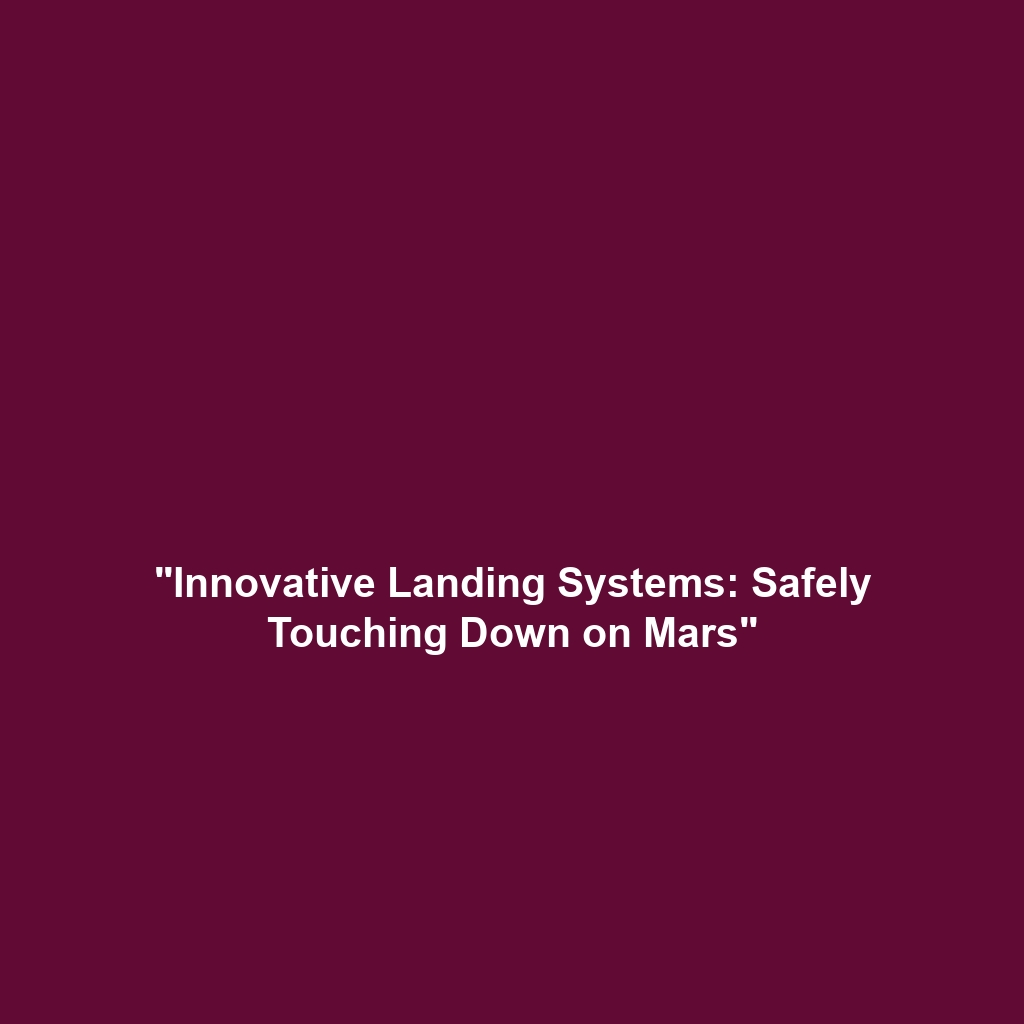Key Discoveries on Mars: Major Scientific Findings from Previous Missions
Introduction
The exploration of Mars has yielded significant scientific discoveries that not only enhance our understanding of the Red Planet but also pave the way for the potential colonization of Mars. With each successful mission launched, we gather invaluable data that could support human life in extraterrestrial environments. This article delves into the major findings from missions such as the Mars rovers and orbiters, highlighting their importance in the ongoing quest to establish a human presence on Mars.
Key Concepts
1. Water on Mars
One of the most groundbreaking discoveries is the presence of water in various forms on Mars, including frozen ice caps and seasonal fluid flows. Understanding the distribution of water is essential for future colonization, as it is a critical resource for humans and their survival.
2. Martian Atmosphere
The composition of the Martian atmosphere has been extensively analyzed by missions such as the Mars Science Laboratory. Findings suggest that while the atmosphere is thin and primarily composed of carbon dioxide, there are traces of other gases which could potentially be harnessed for sustainable living on Mars.
3. Surface Conditions
Research has revealed harsh surface conditions, including extreme temperatures and radiation levels. These insights are vital for developing protective habitats for future colonists, ensuring their safety and comfort on Mars.
Applications and Real-World Uses
The discoveries made during past missions have numerous applications in the context of colonizing Mars:
- Water Extraction Technologies: Utilization of discovered water sources to develop extraction and purification systems.
- Atmospheric Processing: Innovations in technologies to convert Martian CO2 into breathable oxygen for inhabitants.
- Habitat Construction: Using knowledge of local materials for building resilient habitats that protect from cosmic radiation.
These advancements illustrate how scientific findings on Mars play a crucial role in the practical aspects of colonization.
Current Challenges
Despite the progress made, there are several challenges of studying Mars discoveries:
- Limitations in technology to accurately assess surface conditions remotely.
- Environmental hazards that complicate the design of sustainable habitats.
- Logistical issues concerning the transportation of necessary materials from Earth.
Addressing these challenges is imperative for the successful colonization of Mars.
Future Research and Innovations
Looking ahead, future research will focus on:
- Developing advanced robotics for better exploration and data collection.
- Innovating biospheres that can mimic Earth-like conditions for sustainable human life.
- Investigating the possibility of terraforming Mars to create a more hospitable environment.
These endeavors represent the potential breakthroughs necessary for enriching our ability to colonize the Martian landscape effectively.
Conclusion
In summary, the key discoveries on Mars have profound implications for the future of colonization. By understanding the availability of water, the atmosphere, and the surface conditions, we can devise strategies for human habitation. As we continue to harness these scientific findings, it is essential to explore further and innovate for a sustainable future on our neighboring planet. For more insights on space exploration, visit our related topics page.

